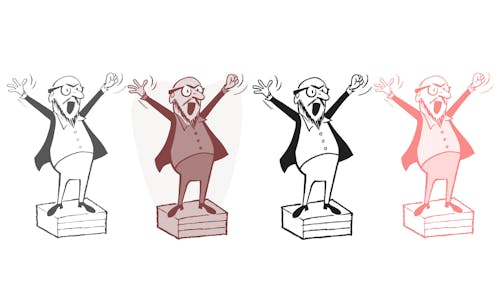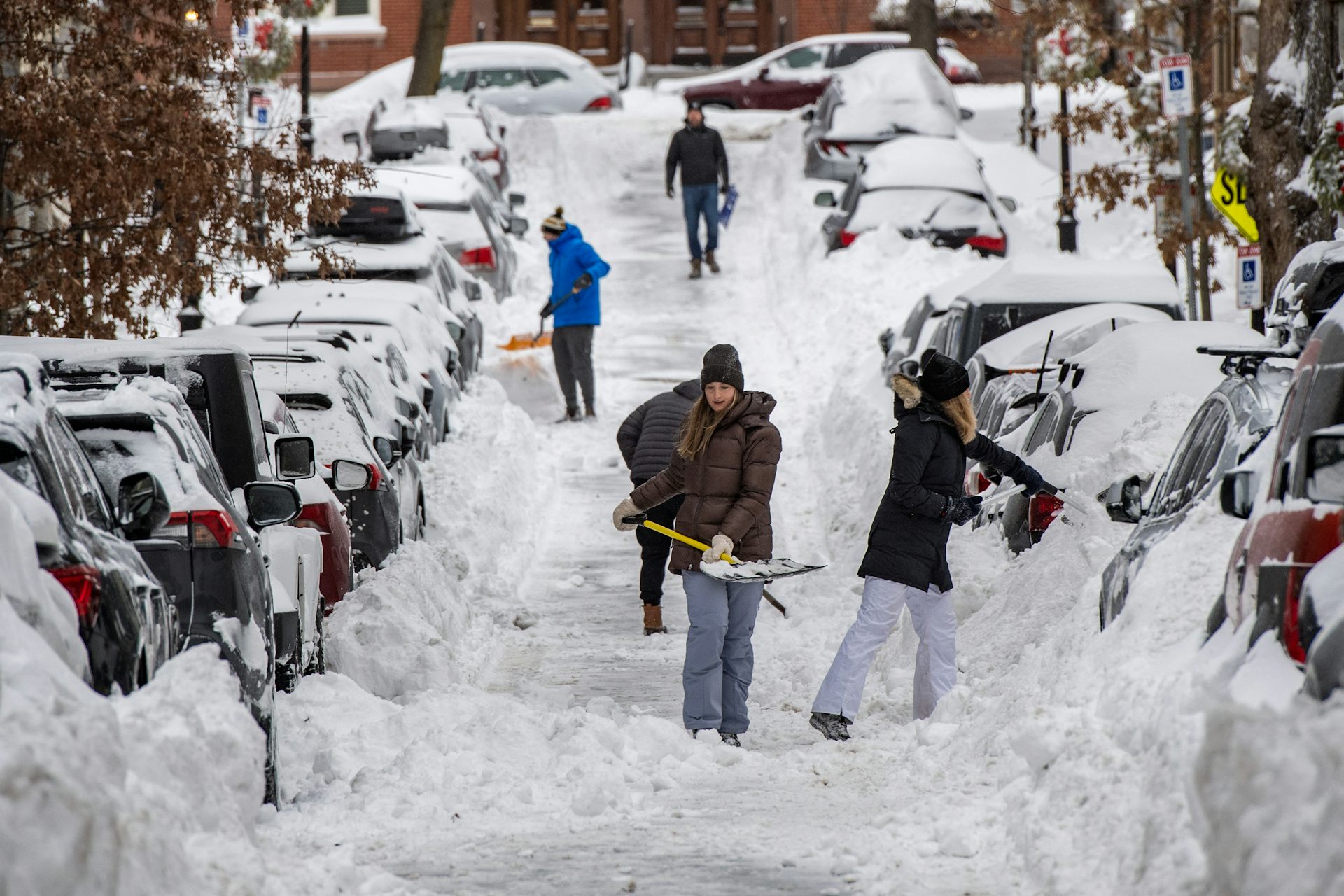Think twice before shouting your virtues online – moral grandstanding is toxic
People who act holier than thou aren't necessarily better than the rest of us. In fact, their moral grandstanding may be driving society apart.

In an era of bitter partisanship, political infighting and ostracization of those with unpopular views, Americans actually agree on one thing: 85% say political discourse has gotten worse over the last several years, according to Pew Research.
The polarization plays out everywhere in society, from private holiday gatherings to very public conversations on social media, where debate is particularly toxic and aggressive.
For psychologists like myself, who study human behavior, this widespread nastiness is both a social problem and a research opportunity. My colleagues and I have zeroed in on one specific aspect that might help explain America’s dysfunctional discourse: moral grandstanding.
Moral grandstanding
The term may be unfamiliar, but most people have experienced moral grandstanding.
Examples of moral grandstanding include when a friend makes grand and extreme proclamations on Twitter about their deepest held values regarding climate change, for instance, and when a campaigning politician makes bold – but clearly untrue – ideological claims about immigration.

Philosophers coined the phrase to describe the abuse of so-called “moral talk” – an umbrella term encompassing all conversations humans have about our politics, beliefs, values and morals.
Usually, people engage in moral talk to learn from, connect with or persuade someone else. They might say of their decision not to eat any animal products, for example, “I am vegan for environmental and animal rights reasons.”
Moral grandstanding occurs when people use moral talk, instead, to promote themselves or seek status. So a moral grandstander might say, “I am vegan because it is the only moral decision. If you care about the planet, you can’t eat animal products.”
For moral grandstanders, conversation is a means to an end – not a free exchange of ideas.
A desire for respect from our peers is normal in humans, as are the desires for safety, love and belonging. Social scientists have traced the evolutionary origins of status seeking to prehistoric times.
Moral grandstanding, however, is a special kind of status seeking. It implies that someone is using conversations about important or controversial topics solely to get attention or impress others.
Severed ties and broken relationships
Just because someone touts their virtues – whether on Twitter or in conversation – does not mean they are morally superior to everyone else.
In a recently published study conducted with a team of other psychologists and philosophers, we asked 6,000 Americans a series of questions about who and why they share their deepest moral and political beliefs with. People who reported sharing beliefs to gain respect, admiration or status were identified as grandstanders.
Almost everyone indicated they had some history of grandstanding, but only a few – 2% to 5% – indicated they primarily used their moral talk to promote themselves.
We found that moral grandstanders were more likely to experience discord in their personal lives. People who reported grandstanding more often also reported more experiences arguing with loved ones and severing ties with friends or family members over political or moral disagreements.
People who indicated using their deepest held beliefs to boost their own status in real life also reported more toxic social media behaviors, picking fights over politics on Facebook, for example, and berating strangers on Twitter for having the “wrong” opinions.
Philosophical accounts of grandstanding strongly suggest that moral grandstanders behave less morally than other people in other ways, too. They are more likely to rudely call others out for not being virtuous enough, systematically disparage entire groups of people and hijack important conversations to serve their own purposes.
When the natural human desire for respect leads people to seek status in situations when they would be better served by listening, it seems, this behavior can drive friends, family and communities apart.
Other reasons for discord
The rise of moral grandstanding isn’t the only reason discourse in the United States has taken a turn for the worse.

Politics have grown extraordinarily polarized, which is both a cause and effect of social polarization. Politically active people feel more animosity and less trust toward “the other side” than they have in generations.
Social media itself seems to accelerate conflict, creating echo chambers of likeminded people that are galvanized against others and driving cycles of outrage that quickly escalate and stifle public participation in important conversations.
So ending moral grandstanding won’t magically fix the public debate in the United States. But tamping it down would lead the country in a more productive direction.
How to handle moral grandstanding
Consider assessing your own conversation style, reflecting about what you say to others and why. When you enter into contentious territory with someone who differs in opinion, ask whether you’re doing so because you’re genuinely interested in communicating and connecting with your fellow human – or are you just trying to score points?
Thinking honestly about your engagement on social media – ground zero for moral grandstanding – is particularly important.
Do you post controversial material just for likes and retweets? Do you share social media posts of people you disagree with just to publicly mock them? Do you find yourself trying to one-up the good deeds of someone else to make yourself look good to people whose respect you crave?
If so, then you may be a moral grandstander.
If not, you can still fight moral grandstanding by recognizing and dissuading these behaviors in others. Given that moral grandstanders crave status, respect and esteem from others, depriving them of the attention they seek is probably the best deterrent.
[ You’re smart and curious about the world. So are The Conversation’s authors and editors. You can get our highlights each weekend. ]
Joshua B. Grubbs receives funding from the National Institute for Civil Discourse and the Charles Koch Foundation.
Read These Next
Anti-ICE protesters are following same nonviolent playbook used by people in war zones across the wo
Americans are learning and doing the kind of work that civilians in war zones worldwide have done for…
Winter storms don’t have to be deadly – here’s how to stay safe before, during and after one hits
Winter storms create many hazards, from slick ice to freezing temperatures. People often underestimate…
Even when people’s rights are ignored, understanding the law can keep protesters engaged
When protesters experience repression and violence, whether or not they have legal education can help…






